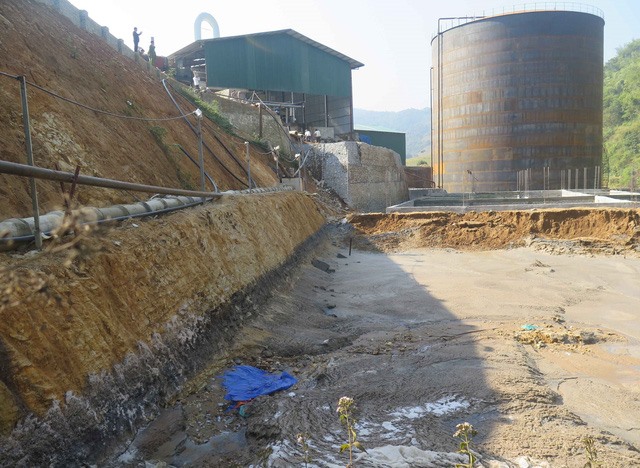 Society
Society

Hundreds of fish died en masse after an industrial waste tank cracked open in the Hẹ Muông Commune in the northern province of Điện Biên on Monday.
 |
| Wastewater leaks out of a waste tank belonging to a cassava starch processing factory, located in the Hẹ Muông Commune in the northern province of Điện Biên. — VNA/VNS Photo Nguyễn Xuân Tiến |
HÀ NỘI — Hundreds of fish died en masse after an industrial waste tank cracked open in the Hẹ Muông Commune in the northern province of Điện Biên on Monday.
Hundreds of cubic metres of wastewater flowed into the Nậm Núa Stream in Điện Biên District after the waste tank cracked open, polluting the river with a foul-smelling dark liquid, the Dân Trí online newspaper reported.
The waste tank belongs to a cassava starch processing factory of the Hồng Diệp–Điện Biên Starch JSC.
Investigations by the province’s environmental police showed that the tank was overloaded, and the wastewater collected in it had not been treated.
The factory’s waste treatment system is still under construction, according to the police.
The operations of the factory were suspended following the accident. The province’s authorities have requested the Hồng Diệp–Điện Biên Starch JSC to stop buying cassava from the locals.
Several residents gathered at the stream to collect the dead fish on Monday.
Lò Văn Chung, a resident in the neighbouring Sam Mứn Commune, said the locals were worried about the pollution as the stream was their main source of water.
“Thousands of households in the district use water from the stream for domestic purposes, for irrigation systems, as well as to raise cattle and fish,” he said.
Cao Đăng Nghị, vice chairman of the Núa Ngam Commune, which uses water from Nậm Núa Stream, said he had instructed the locals to not let their cattle drink water from the stream and to avoid using the water for their paddy fields. — VNS




